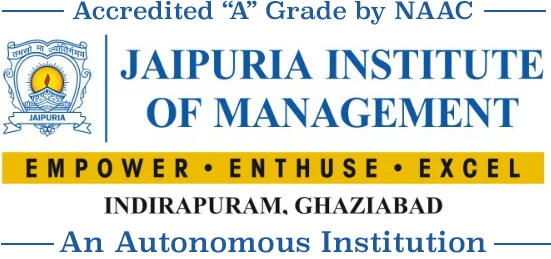The Union Budget is the blueprint of the Government’s revenue and expenditure for a fiscal year, starting from 1st April of one year to 31st March of the following year. Every year on the 1st of February, the Finance Minister announces the Union Budget so that it can be materialized before the start of a new financial year. It is classified into two parts – revenue budget and capital budget. The first Union Budget of India, a concept introduced when the country was still under the British colonial rule, was presented on 7th April, 1860, by the then Finance Minister of India, James Wilson. The first Union Budget of Independent India was presented on November 26, 1947, by Sir R.K. Shanmugham Chetty (the first Finance Minister of Independent India).
Jaipuria Institute of Management, Ghaziabad screened the live budget session on 1st Feb 2020. Presenting the first Union Budget of the third decade of the 21stcentury, Finance Minister -Smt. Nirmala Sitharaman, unveiled a series of far-reaching reforms, aimed at energizing the Indian economy through a combination of short-term, medium-term, and long term measures.The Union Budget was structured on the overall theme of “Ease of Living”. The budget rejigged personal income tax slabs with riders, extended tax benefits for affordable housing and gave relief to companies on payment of dividend in the Union Budget for 2020-21 as the Narendra Modi government aims to boost consumption to bring the economy out of the worst slowdown in 11 years. The minister proposed raising customs duty on a variety of products ranging from tableware and kitchenware, electrical appliances to footwear, furniture, stationery and toys to give a level playing field to domestic companies and boost ‘Make in India’. To boost growth, Sitharaman announced higher spending on infrastructure, rural development and agri sector.The Finance Minister said the government is proposing a 16-point action plan to boost agriculture and farmers’ welfare. The finance minister hiked the fiscal deficit target for current fiscal to 3.8 percent of GDP, from 3.3 percent. Domestic equity benchmark indices BSE Sensex and NSE Nifty50 haven’t cheered the budget as indices dropped sharply.
The live screening session at Jaipuria Institute of Management, Indirapuram, Ghaziabad ended with an open forum to MBA students to deliberate on the new reforms announced in the budget, its effect on the economy, financial empowerment of every citizen and the concept of governance.
Ms. Prerna Garg
Assistant Professor
Jaipuria Institute of Management, Indirapuram, Ghaziabad




